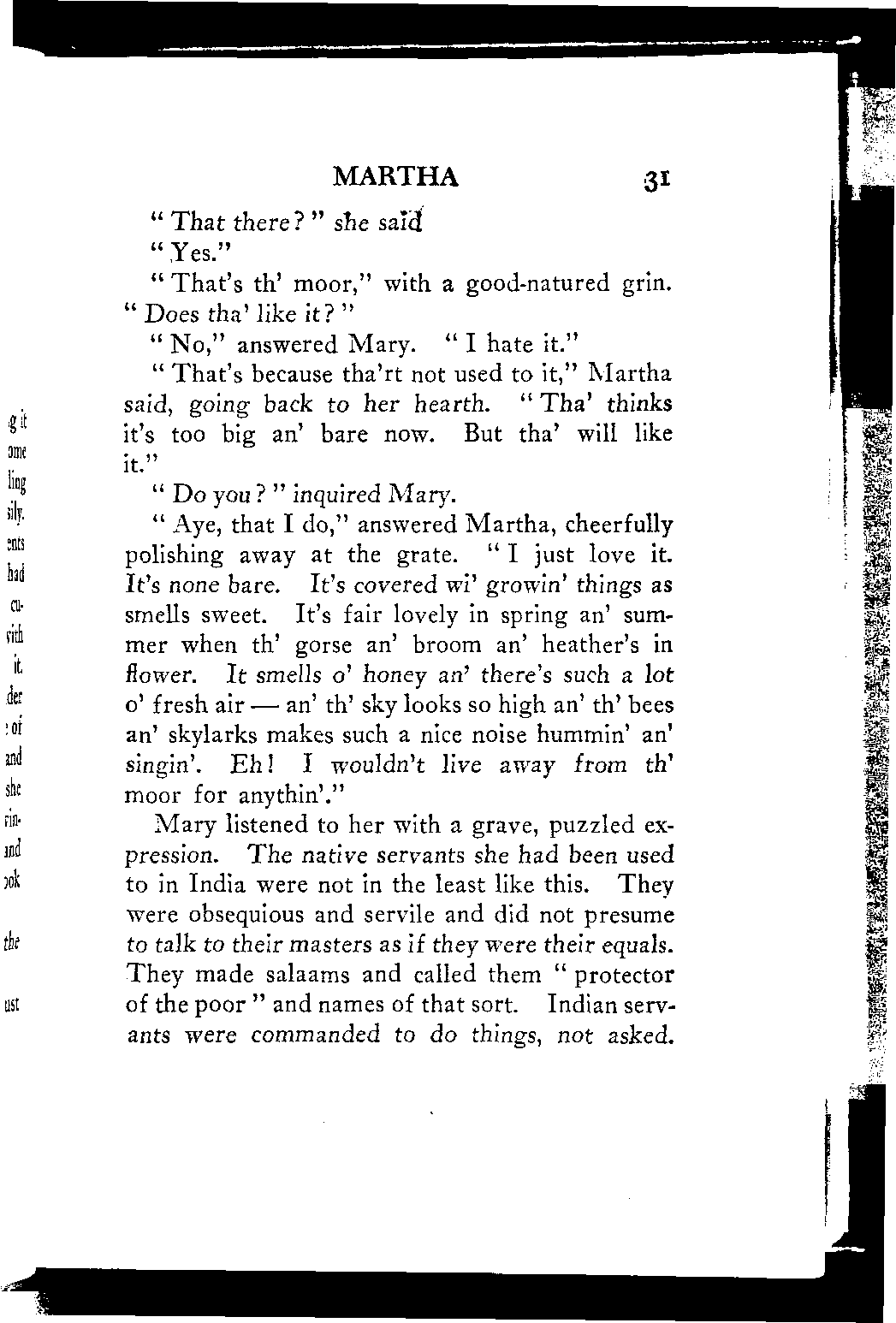 p030 _
-chap- _
toc-1 _
p031w _
toc-2 _
+chap+ _
p032
p030 _
-chap- _
toc-1 _
p031w _
toc-2 _
+chap+ _
p032
"That there?" she said
"Yes."
"That's th' moor," with a good-natured grin.
"Does tha' like it?"
"No," answered Mary. "I hate it."
"That's because tha'rt not used to it," Martha
said, going back to her hearth. "Tha' thinks
it's too big an' bare now. But tha' will like
it."
"Do you?" inquired Mary.
"Aye, that I do," answered Martha, cheerfully
polishing away at the grate. "I just love it.
It's none bare. It's covered wi' growin' things as
smells sweet. It's fair lovely in spring an' summer
when th' gorse an' broom an' heather's in
flower. It smells o' honey an' there's such a lot
o' fresh air -- an' th' sky looks so high an' th' bees
an' skylarks makes such a nice noise hummin' an'
singin'. Eh! I wouldn't live away from th'
moor for anythin'."
Mary listened to her with a grave, puzzled expression.
The native servants she had been used
to in India were not in the least like this. They
were obsequious and servile and did not presume
to talk to their masters as if they were their equals.
They made salaams and called them "protector
of the poor" and names of that sort. Indian servants
were commanded to do things, not asked.
[[31]]
p030 _
-chap- _
toc-1 _
p031w _
toc-2 _
+chap+ _
p032